Latest News
Task Force on Climate Preparedness and Resilience Announces Tribal Climate Resilience Program
Posted by on July 16, 2014 at 6:47 PM ESTToday, at the fourth and final meeting of the White House State, Local, and Tribal Leaders Task Force on Climate Preparedness and Resilience, the Administration announced the new Tribal Climate Resilience Program to help tribes prepare for climate change.
As part of this new initiative, Secretary of the Interior Sally Jewell will dedicate $10 million in funding for tribes and tribal organizations to develop tools to enable adaptive resource management, as well as the ability to plan for climate resilience. The program will offer nationwide climate preparedness planning sessions and provide funding for tribal engagement and outreach within regional and national climate communities.
“Building on the President’s commitment to tribal leaders, the partnership announced today will help tribal nations prepare for and adapt to the impacts of climate change on their land and natural resources,” said Secretary Jewell.
The Department of the Interior and Environmental Protection Agency will also partner to create a new subgroup on climate change under the White House Council on Native American Affairs, which will share data and information and coordinate Administration efforts to assist tribes in climate resilience and mitigation efforts.
“Tribes are at the forefront of many climate issues, so we are excited to work in a more cross-cutting way to help address tribal climate needs,” said EPA Administrator Gina McCarthy. “We’ve heard from tribal leaders loud and clear: when the federal family combines its efforts, we get better results - and nowhere are these results needed more than in the fight against climate change.”
Task Force members Chairwoman Karen Diver of the Fond du Lac Band of Lake Superior Chippewa and Mayor Reggie Joule of the Northwest Arctic Borough were tasked by the President with providing recommendations on climate preparedness and resilience specific to tribes. They led a national effort consisting of listening sessions, conference presentations, and agency webinars, to collect a multitude of tribal input on how to make tribal communities more prepared and resilient in the face of climate change. These recommendations will form the basis for their final recommendations to the Administration.
We look forward to continuing our work with Indian Country on this important topic and thank Chairwoman Diver and Mayor Joule for their tireless efforts leading to today’s announcement of this crucial new program.
Raina Thiele is the Associate Director of Intergovernmental Affairs. Susan Ruffo is the Associate Director for Climate Preparedness in the Council on Environmental Quality.
Learn more aboutStrengthening Communities Through Immigrant and Refugee Integration
Posted by on July 16, 2014 at 5:39 PM ESTOn July 16, I welcomed over 170 policymakers, practitioners, faith leaders, elected officials, researchers, and business representatives to the first-ever White House National Convening on Immigrant and Refugee Integration.
These leaders traveled from every corner of the United States to share best practices on successful initiatives that cities and counties are deploying across the country. Participants brainstormed new strategies to enhance local, regional and national programs that ensure immigrants are fully participating in and contributing to American society.
Listening to stories of their efforts on the ground was a poignant reminder that our success as a nation of immigrants is rooted in the American values of equality and opportunity. Each and every day, these organizations work to safeguard our nation’s legacy as a beacon of hope and opportunity for people from across the world.
Over the past five years, the Administration has worked to strengthen integration efforts and maintain a dialogue with stakeholders to inform our national strategy on immigrant integration. In 2010, we established an interagency task force made up of key offices within the Departments of Homeland Security, Justice, Education, Health and Human Services, and Labor. This task force identified three pillars—linguistic, civic, and economic integration—to guide all organizational and federal efforts to integrate newcomers into the fabric of our nation.
Since then, the Administration has ensured that immigrants and refugees have tools that empower them to become successful entrepreneurs and engines for innovation and the economy. Through initiatives like the Department of Education’s Networks for Integrating New Americans (NINA) and the Department of Homeland Security’s Citizenship and Integration Grant Program, the Administration promotes diverse, inclusive, and welcoming communities that benefit both established residents and newcomers.
At the Convening, the Administration reaffirmed its commitment to advancing innovative policies in the fields of English language learning, workforce development, and naturalization of qualified lawful permanent residents. But more importantly, this inaugural event gave peer practitioners a platform where they could learn from one another, leverage collective resources, and forge innovative strategies for successful integration.
By shining a spotlight on the incredible achievements of organizations—like Welcoming America and the National Partnership for New Americans—and showcasing examples of cities and state organizations doing great things to strengthen our nation’s economic and civic life, I am confident in our ability to welcome and support individuals working to achieve the American Dream.
For more information, click here.
Felicia Escobar is the Special Assistant to the President for Immigration Policy in the Domestic Policy Council.
Learn more about ImmigrationAmeriCorps Expands Presence in Tribal Communities
Posted by on July 16, 2014 at 3:37 PM ESTDuring his June visit to the Standing Rock Sioux Tribal Nation in Cannonball, North Dakota, the President re-emphasized the Administration’s focus on strengthening Native American communities through education and economic development. Thus, as part of the Obama administration’s commitment to create lasting change in Indian Country, we are pleased to announce $3 million in AmeriCorps grants to support Native American communities.
These funds will bolster President Obama’s priorities for tribal communities and increase the number of AmeriCorps members serving these communities by 41 percent. AmeriCorps members serving in these programs – most of whom will be recruited from Indian Country – will be eligible to earn $1 million in education scholarships to help pay for college or repay their student loans -- putting them on track for greater economic opportunity in the future.
Through these 17 tribal grants – the highest number approved in the past decade – the Corporation for National and Community Service (CNCS) will support more than 250 AmeriCorps members serving with tribal organizations in 13 states. AmeriCorps members will serve side-by-side with tribal elders and local leaders. They will work to tackle key issues facing Native American communities:
Learn more about Service,President Obama Hosts Iftar Dinner at the White House
Posted by on July 15, 2014 at 5:12 PM ESTEd. note: This is cross-posted on the White House Blog. See the original post here.
Last night, President Obama hosted his sixth Iftar dinner celebrating Ramadan at the White House, an annual tradition started by First Lady Hillary Clinton when she hosted a Ramadan Eid celebration dinner in 1996. Many consider President Thomas Jefferson to be the first President to host an Iftar dinner, as he hosted a sunset dinner to accommodate the fasts of an envoy from Tunisia over 200 years ago.
The Iftar is the meal after sunset that concludes the day of fasting during the month of Ramadan, a time to pray and reflect, to be reminded that we are equals in humanity, and to reaffirm commitments to helping the less fortunate, including those struggling from economic hardship and inequality.
Last night, guests were welcomed into the East Wing where a copy of the Quran owned by President Thomas Jefferson, one of the founding fathers of the United States, was on display from the Library of Congress. At sunset, guests gathered in the Grand Foyer to break their fast with a date following the traditional melodic Muslim call to prayer led by a local student from the University of Maryland. Then finally, after a 16-hour day of fasting since sunrise, guests gathered in the State Dining Room for a halal meal with the President.
Learn more aboutMoving Forward with USAID's LGBT Vision for Action
Posted by on July 14, 2014 at 11:53 AM ESTEd. note: This blog is cross posted on the USAID Blog. See the original post here.
With June’s Pride month celebrations behind us, I reflect on the reasons I celebrated.
Reverberations continue from President Obama’s ground-breaking Memorandum of December 2011, which outlined the U.S. Government’s commitment to the human rights of lesbian, gay, bisexual and transgender (LGBT) folks around the world. USAID continues to take a lead among foreign affairs agencies in fulfilling the tenets of the Presidential Memorandum, recently issuing its own document: USAID LGBT Vision for Action.
USAID’s vision is a world in which the basic and universal human rights of LGBT persons are respected and they are able to live with dignity, free from discrimination, persecution and violence. In this world, LGBT persons are able to participate fully in democratic decision-making in their households, communities and countries; have equal access to sustainable livelihoods, economic assets and resources; are not barred from accessing the basic education, health and other services that are enjoyed by their fellow citizens and that are essential for personal well-being and growth.
In Colombia, for example, USAID has worked hard to build the skills of LGBT leaders so they can participate fully and effectively in democratic processes. We are supporting a project designed to extend democratic governance and respect for human rights to all Colombians, as well as mainstream LGBT and other vulnerable populations’ rights (e.g. through improving relations with law enforcement and pursuing legal cases to enforce human rights). Our Colombian civil society partners are developing advocacy and policy strategies, improving relations with law enforcement, pursuing legal cases to enforce human rights abuses, and raising awareness to institutionalize a culture of respect for LGBT rights.
The first Pride celebration I attended, decades ago, was small, apologetic and attended by only a furtive few. My calendar this past June couldn’t possibly have accommodated all the events hosted by the White House and federal agencies across Washington, D.C., let alone the numerous events hosted by USAID missions across the more than 80 countries in which we work. Near the end of June, I co-moderated a session at the first ever White House Forum on Global LGBT Human Rights.
When I first engaged as an American in the struggle for the human rights of LGBT folks around the world, it was often difficult to identify local LGBT representatives with whom to interface. Today they have bravely and proudly organized in most countries. They guide us, and trust us to join forces with them, shoulder to shoulder, as they live and breathe and move their cultures and countries toward realization of the Martin Luther King Jr. teaching: “The arc of the moral universe is long, but it bends towards justice.”
Soon after arriving at USAID, four months ago, I travelled to Uganda to meet with some of these brave, proud individuals. I came away not only bowed by the enormity of their challenges and the urgency and critical importance of supporting them, but also – by virtue, above all, of their brilliance and tenacity – convinced of the inevitability of their success.
While many of us celebrated this June openly and joyously, others of us were forced to do so behind closed doors, shielding ourselves from hostile environments. In some 80 countries around the world, same-gender consensual relations are criminalized; in a half dozen countries, same-gender consensual relations are punishable by death. In countries like Uganda, Nigeria and Russia, this past year saw backsliding of enormous and tragic proportions.
To say that there is a lot of work ahead is to state the obvious. At the same time, more than ever before in my lifetime, I understood and joined in the celebrations of Pride month 2014. I look forward to Pride month 2015, and celebrating the further achievements of our global community.
Todd Larson is the Senior Lesbian, Gay, Bisexual and Transgender (LGBT) Coordinator at USAID.
Learn more aboutWe Read, We Moved, We Volunteered!
Posted by on July 10, 2014 at 5:13 PM ESTEd. note: This is cross-posted on the Corporation for National & Community Service blog. See the original post here.
We had a great time today as we kicked off Let’s Read! Let’s Move! for the summer. CEO Wendy Spencer teamed up with U.S. Secretary of Education Arne Duncan to take a field trip to the Smithsonian’s National Museum of the American Indian, celebrating its 10th birthday this year.
Wendy, Secretary Duncan, and friends read a book called The Butterfly Dance to the students, who had just been introduced to native culture and traditions in an interactive activity that included dancing, music, and a horse-dressing demo. After the reading (which Wendy also acted out!), the students got active again with fun, physical challenges led by The Washington Kastles, the YMCA of Metropolitan Washington, and AmeriCorps members. Students got to try such activities as Iglu Building, ‘Ulu Maika Hawaiian Bowling, Yup’ik Yo-Yo, and tennis — and enjoyed healthy snacks along the way.
Museum Director Kevin Gover welcomed everyone along with special guests Broderick Johnson, assistant to the President and cabinet secretary; Sam Kass, executive director of Let’s Move! and senior policy advisor for nutrition policy; and the Washington Kastles with Head Coach Murphy Jensen.
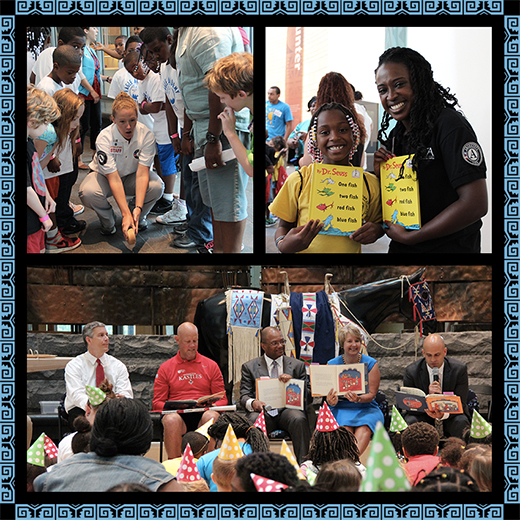 Learn more about , Education
Learn more about , EducationJustice and Identity
Posted by on July 1, 2014 at 8:45 AM ESTEd. note: This is cross-posted on the U.S. Department of Labor's blog. See the original post here.
As we celebrate Pride Month and approach the 50th anniversary of the Civil Rights Act, the Labor Department is reaffirming its commitment to equal opportunity for all. That’s why we are updating enforcement protocols and anti-discrimination guidance to clarify that we provide the full protection of the federal non-discrimination laws that we enforce to transgender individuals.
These changes reflect current law. In Macy v. Holder, for example, the Equal Employment Opportunity Commission concluded that discrimination because a person is transgender is sex discrimination in violation of Title VII of the Civil Rights Act of 1964. The Office of Federal Contract Compliance Programs and Civil Rights Center, along with the Employment and Training Administration, will issue guidance to make clear that discrimination on the basis of transgender status is discrimination based on sex. While the department has long protected employees from sex-based discrimination, its guidance to workers and employers will explicitly clarify that this includes workers who identify as transgender. The department will continue to examine its programs to identify additional opportunities to extend the law’s full protection against discrimination to transgender workers.
Our workforce and our entire economy are strongest when we embrace diversity to its fullest, and that means opening doors of opportunity to everyone and recognizing that the American Dream excludes no one.
Tom Perez is Secretary of the U.S. Department of Labor.
Learn more about Civil RightsLet’s Move! in Indian Country Celebrates Third Anniversary
Posted by on June 30, 2014 at 2:08 PM ESTEd. note: This is cross-posted on the Let's Move! blog. See the original post here.
Earlier this month, Let’s Move! in Indian Country (LMIC) celebrated its third anniversary at the Pueblo of Zuni in New Mexico. The Pueblo of Zuni exemplifies a community-driven effort to prevent childhood obesity by implementing innovative programming that is firmly based on their traditions and culture. The Zuni commitment to improving the health of youth and families is also evidenced by their partnerships with the IHS, Nike N7 Fund, and the Notah Begay III Foundation.
Learn more about
- &lsaquo previous
- …
- 26
- 27
- 28
- 29
- 30
- 31
- 32
- 33
- 34
- …
- next &rsaquo


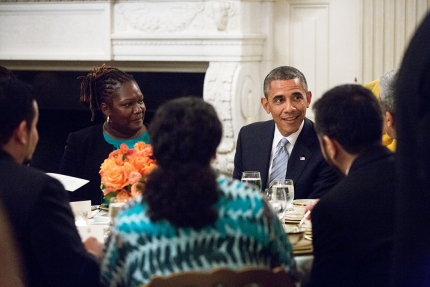
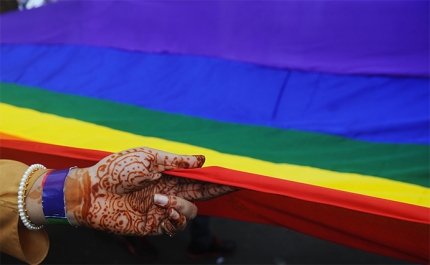
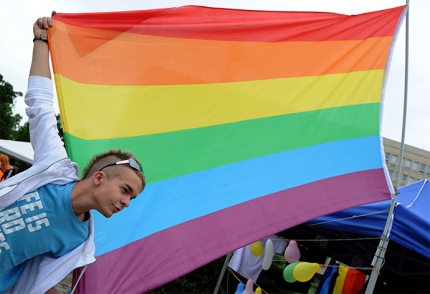
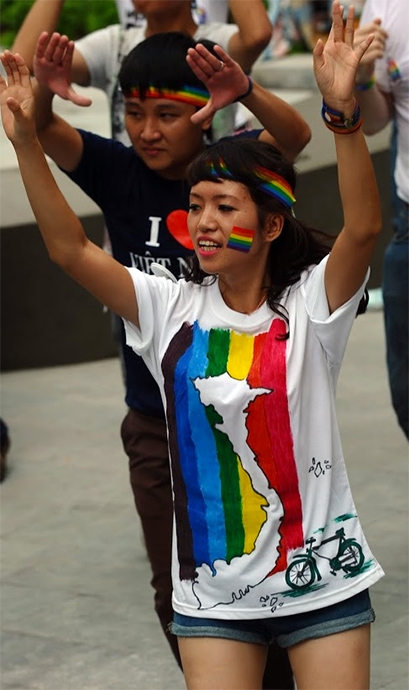
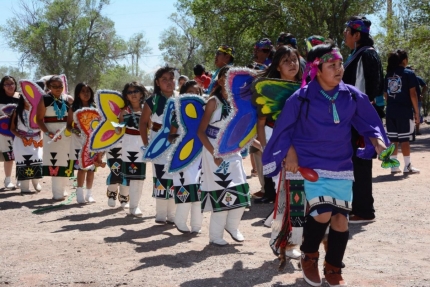
Twitter